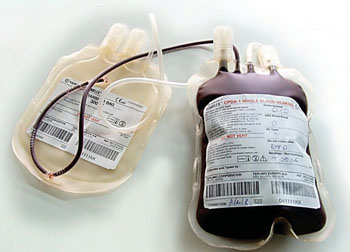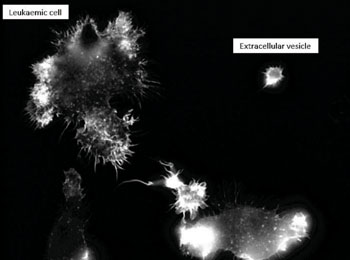Hematology

Handheld Coagulation Analyzer Recieves FDA Clearance
For the first time, the US Food & Drug Administration (FDA) has given 510(k) clearance for a point-of-care (POC) Prothrombin Time / International Normalized Ratio (PT/INR) device based on the new rules published in March 2016. Winner of multiple design awards (e.g. Red Dot Award and iFDesign Award), the device includes a number of innovations and features not found on most other POC analyzers. More...18 Oct 2016


Body Surface Area Helps Predict Response to Blood Transfusion
The risks associated with unnecessary transfusion of blood products, including infections, transfusion reactions, and, in some clinical situations, alloimmunization, makes a judicious approach to transfusion is of the utmost importance. More...06 Oct 2016
Performance of Hematology Analyzer and Peripherals Evaluated
The complete blood count and leukocyte differential count are the basic, most common tests in hematology laboratories. More tests can be performed at the same time; labor reduced, and results made more precise by an advanced automated hematology analyzer and slidemaker/stainer. More...05 Oct 2016
Hormone Test May Reduce Rate of Teens Misdiagnosed with PCOS
Measuring blood levels of the recently discovered hormone irisin may improve accurate diagnosis rates of teenagers with polycystic ovary syndrome (PCOS) and so reduce the number of unnecessary treatments prescribed to healthy girls at an especially critical stage in their lives. More...19 Sep 2016
CE-Marked Blood Analyzer Interfaces with Popular Data Management System
Unique point-of-care (POC) connectivity to a widely used information transfer and management system is now available for a novel in-line arterial blood analyzer that supports rapid and frequent measurement of blood gases, electrolytes, and metabolites to monitor critical care patients without leaving bedside. More...12 Sep 2016

Novel Leukemic Blood Test Has Massive Diagnostic Potential
The potential of a new test, which could revolutionize the way doctors diagnose and monitor common childhood leukemia, has been explored. The test is based on the fact that cancerous acute lymphoblastic leukemia cells produce and release special structures that can be traced in the blood. More...07 Sep 2016
In Other News
Prognostic Biomarkers Predict Dengue Shock and Organ Failure
Inherited Genetic Variant Increases Risk of Chronic Lymphocytic Leukemia
Diagnostic Predictive Value of Platelet Indices Evaluated
Early Detection Identified for Leukemia Patients' Resistance to Therapy
Droplet Digital PCR Rapidly Detects Alpha-Thalassemia Variants
Device Offers Potential for More Effective Blood Disorders Diagnostics
Next-Generation Systems Introduced for Clinical Laboratories
FDA Approves Use of New Zika Assay to Screen Blood Supply
Blood Test Uses Plasma Ceramides as Biomarkers to Assess Risk of Heart Attack
Cord Blood Outperforms Matched Donor in Bone Marrow Transplants
Medical Center Saves Money by Reducing Blood Wastage
Automated Hemostasis Tests Affected By Hemolysis, Icterus And Lipemia
Blood Coagulation Detector Helps Monitor Stroke Risk
Test Developed to Predict Sepsis in Burns Patients
Faulty Genetic Instructions Drive Deadly Leukemia in Adults
Flow Cytometric Assay Evaluated for Heparin-Induced Thrombocytopenia
Novel Approach Could Make Bone Marrow Transplants Safer
Peripheral Blood Eosinophilia Correlates with Hyperplastic Nasal Polyp Growth
Two New Types Of Childhood Leukemia Discovered
Blood Test Advances Diagnosis Of HELLP Syndrome
Alpha-Thalassemia Affects HbA1c Measurement
Genetic Test Predicts Adverse Reaction To Toxic Goiter Treatment
Novel Technology Detects Blood Clots With Simple POC Test
The Hematology channel at LabMedica covers the all aspect of plasma, coagulation, transfusion medicine, and blood banking, as well as related lab tools and techniques.










